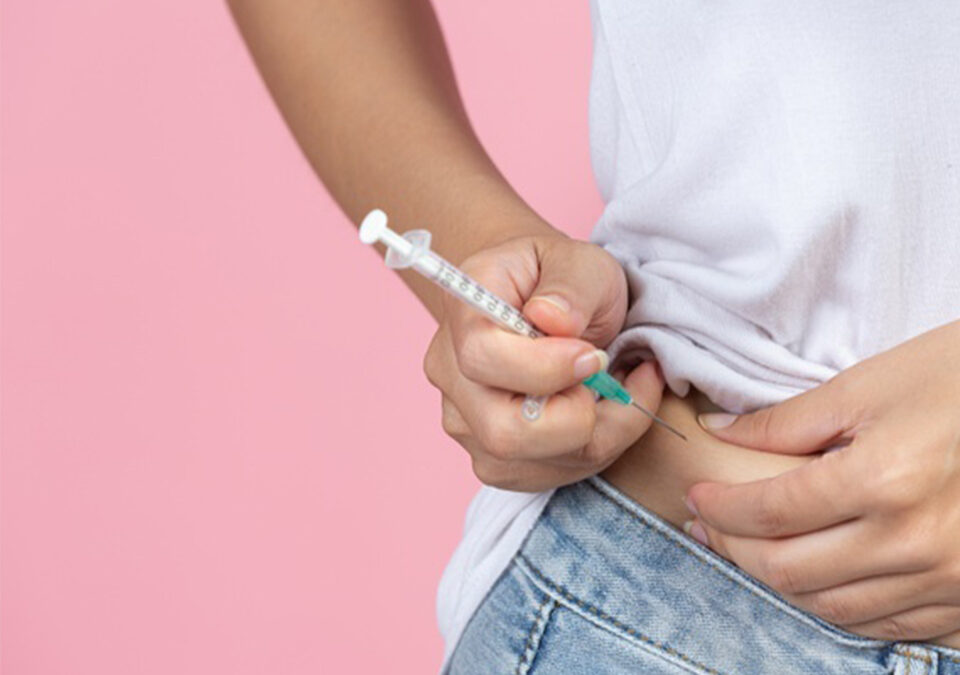
How Close Are We To A Cure For Type 2 Diabetes?
December 9, 2021
The Abnormal Albuminuria Syndrome In Diabetics
December 9, 2021Insulin is the key element in both type 1 diabetes and type 2 diabetes. It is an important hormone secreted by the pancreas, that helps the cells get glucose from the blood. Therefore, how the body reacts to insulin is a crucial factor in diabetes management.
What Is Insulin Sensitivity?
Insulin sensitivity is when the cells respond well to the insulin and require only a small amount of insulin to get sugar from the blood. Therefore, any person with insulin sensitivity tends to have lower blood sugar levels than someone who does not.
Difference Between Insulin Sensitivity And Insulin Resistance
Insulin sensitivity and insulin resistance are related terms. Anyone who is insulin sensitive has low insulin resistance, whereas anyone with insulin resistance has low insulin sensitivity.
How Does Insulin Sensitivity Impact Diabetes?
Insulin sensitivity and diabetes are connected in many ways. Low insulin sensitivity often increases the risk of getting prediabetes and type 2 diabetes. Although it is usually related to type 2 diabetes, it can also occur in people with type 1 diabetes.
Furthermore, if you have diabetes as well as low insulin sensitivity, you will require more doses of insulin to regulate your blood sugar levels. In this case, your body has high levels of circulating insulin, also called hyperinsulinemia, which may cause many complications such as blood vessels damage, high blood pressure, heart diseases, obesity, cancer, osteoporosis, etc.

Some Adverse Effects of Low Insulin Sensitivity
- Hypoglycemia:
Low insulin sensitivity increases the risk of getting episodes of hypoglycemia, especially in people with type 1 diabetes. Hypoglycemia is a condition of a sudden drop in blood sugar levels. If you have insulin resistance, your body will require excessive insulin to function properly. High insulin levels in the body will cause the cells to absorb the glucose rapidly from the blood, leading to dangerously low blood glucose levels.
- Cardiovascular Diseases:
High levels of insulin in the blood may lead to inflammation, causing blood vessels damage and the formation of plaque in the arteries. It can cause many cardiovascular diseases, such as high blood pressure levels, heart attacks and heart failure.
- Cancer:
Low insulin sensitivity has also been found to increase the risk of cancer of the bladder, breast, colon, cervix, pancreas, prostate and uterus. It can promote the growth of the cancer cells in the body as the body’s ability to kill malignant cells is suppressed in conditions of insulin resistance.
- Other Effects:
Low insulin sensitivity can also cause many other diseases, such as obesity, osteoporosis, Alzheimer’s disease, non-alcoholic fatty liver disease (NAFLD), polycystic ovarian syndrome (PCOS), etc.
How To Prevent Low Insulin Sensitivity?
- Exercise Daily: Physical exercise seems to play the most important role in improving insulin sensitivity. It is the best way to boost your insulin sensitivity immediately.
- Eat a Healthy Diet: Eat foods rich in fibre. You should also avoid eating added sugars, processed foods and foods with a high glycemic index.
- Reduce Stress: Stress and anxiety can cause temporary insulin sensitivity. Therefore, reducing your stress with techniques such as mindfulness, meditation, etc., is highly beneficial in improving insulin sensitivity.
- Maintain a Healthy Body Weight: Losing weight or attaining a healthy body weight vastly helps in improving insulin sensitivity.
Takeaway:
Insulin sensitivity is a deciding factor in diabetes and your diabetes management. Therefore, ensuring that you do not develop low insulin sensitivity is extremely important. It may, otherwise, lead to many health complications such as heart diseases, cancer, etc.
References:
- https://www.diabetes.co.uk/insulin/insulin-sensitivity.html
- https://www.endocrineweb.com/conditions/type-2-diabetes/insulin-resistance-causes-symptoms
- https://www.healthline.com/nutrition/insulin-and-insulin-resistance
- https://www.cdc.gov/diabetes/basics/insulin-resistance.html
- https://www.medicalnewstoday.com/articles/305567#what-is-insulin-resistance
- https://www.sciencedirect.com/topics/biochemistry-genetics-and-molecular-biology/insulin-sensitivity
- https://care.diabetesjournals.org/content/34/Supplement_2/S225
- https://www.ncbi.nlm.nih.gov/pmc/articles/PMC1204764/




